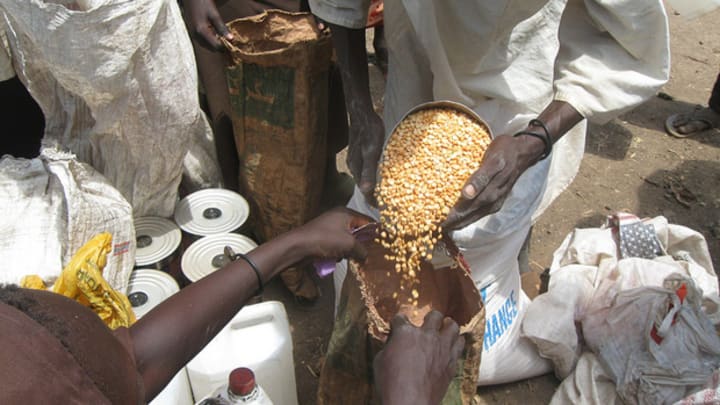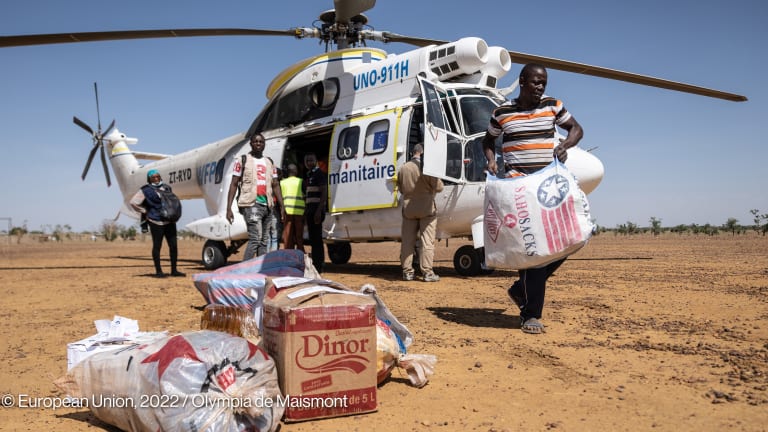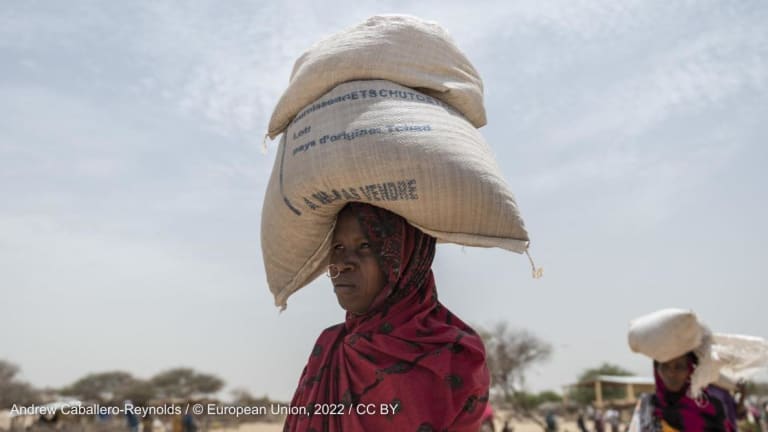
Until just a few months ago, Concern Worldwide, Ireland’s largest humanitarian organization, had an ambitious long-term relief and development project planned in South Sudan.
But that went up in flames in December, when a failed coup sparked a conflict between government and rebel forces with no end in sight — and the NGO’s assets in Koch, Unity State, were looted by unknown criminals.
“We lost much of what we’d been able to put on the ground, and since then we’ve been responding in an emergency fashion,” Concern Country Director John Kilkenny told Devex.
The project was hoping to boost the food security and nutrition situation in Koch, which was always precarious in many parts of South Sudan but that had seen some improvement over the past year and even “relatively promising for many South Sudanese,” according to a joint report released last week by 22 aid groups.
But whatever was promising is now utterly gone — to the point that U.N. and NGO officials have been coming out with famine warnings.
Despite the gravity of the situation, though, these warnings don’t seem to be enough to get more action from international donors. Only 28 percent of the U.N.’s more than $600 million revised appeal for food security and livelihood under the 2014 crisis response plan for South Sudan has been met as of posting time.
But with a more detailed analysis of the food security situation in the country set to come out next week through the Integrated Phase Classification Workshop’s report, aid agencies are hopeful donors will finally have a clearer picture of the issue and respond appropriately.
“Nobody wants to precipitate a crisis by crying wolf,” Kilkenny said.
Logistical nightmare
Donors, in all fairness, have been responding, although aid groups argue most of the assistance is short-term rather than for long-term coverage, which they need given the scale of the crisis. Many donors don’t also take into account the operational costs involve in getting aid to where it’s needed most.
Kilkenny said they are faced with huge logistical challenges, and many of them had to resort to deliver aid by air, which is extremely expensive, due to insecurity and impassable roads from the rainy season. Concern, for instance, is helping provide clean water for internally displaced South Sudanese in the U.N. mission camp in Bentiu, but since trucks couldn’t move and with insecurity preventing them from accessing the water treatment facility in the area, they were forced to distribute water-treatment chemicals. Their efforts have been minimized in the past week after the organization decided to pull out all international and “relocatable” national staff out of Bentiu, which is currently experiencing heavy fighting between government authorities and opposition forces.
But Kilkenny was relieved — and surprised — that donors have not yet sacrificed some development work (which are crucial in many areas, such as in Northern Bahr el Ghazal, where malnutrition rates are reportedly the highest across the country) for emergency response.
“People sometimes think that you can sacrifice development in order to fund the emergency. That’s not the case here because the situation of most people, particularly in rural areas, is so precarious,” he said. “We do have to maintain efforts on both fronts, and need donors to recognize that, because the minute you stop funding an area where you say, ‘we're only funding conflict,’ I'm afraid the problem is we're going to have another humanitarian need in another area.”
While their work in Bentiu has been reduced to emergency response, the organization is able to continue its food security programs in other areas unaffected by the fighting south of Unity State.
At the upcoming pledging conference in Norway, aid groups are expected to appeal for more funding that will cover their activities not just for six months, but for the full year.
And the message, according to Kilkenny, will be: “There’s no point now to wait and see. We need the resources to come because the needs already exist, irrespective of at what point it may be necessary to declare a full-scale emergency from a nutrition and famine point of view. By the time that goes out, it will be too late.”
Read more development aid news online, and subscribe to The Development Newswire to receive top international development headlines from the world’s leading donors, news sources and opinion leaders — emailed to you FREE every business day.
See more:
UNDP to donors: Don’t abandon South Sudan’s long-term development
From emergency to frustration in South Sudan
A marathon, not a sprint — South Sudan's biggest development challenge
What foreign aid got wrong in South Sudan




